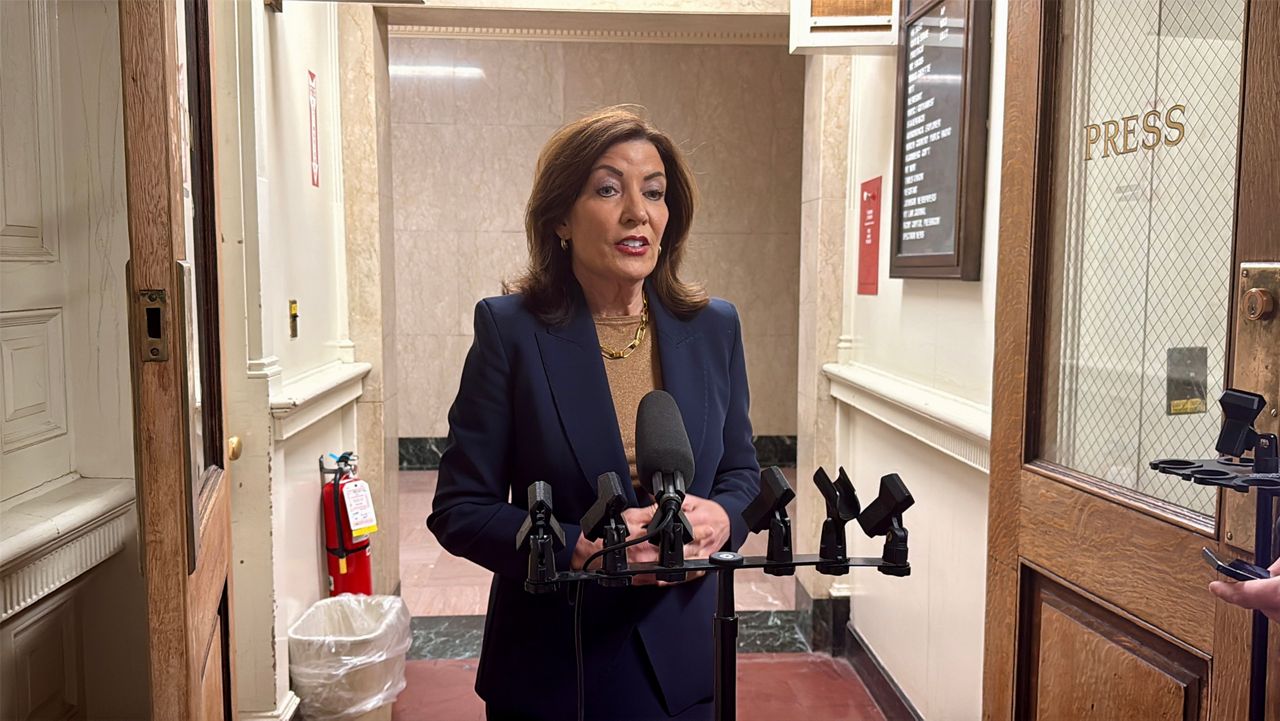As a budget deal nears completion, Gov. Kathy Hochul on Friday would not rule out including changes in the final spending plan to weaken education standards for nonpublic schools in exchange for political gain.
State Assembly Speaker Carl Heastie has led a push to amend state Education Department guidelines for religious and non-public schools as a political bargaining chip — especially amid the contentious New York City's mayoral election.
"It's on the list," Heastie said Thursday.
The state Education Department adopted stricter substantial equivalency standards for religious and nonpublic schools in 2022. Lawmakers and leaders from the Hasidic Jewish community have pushed for the regulations to be changed in a backroom budget agreement ever since.
The speaker did not answer a question later Thursday afternoon about reaching a deal with Gov. Hochul on the issue.
"There's a lot of issues that have been raised at the end here and I have to process all of them," the governor said to reporters about the topic Friday evening.
Senate leaders, including Senate Finance Committee chair Liz Krueger, has been staunchly opposed to the proposal.
"Believe it or not, these conversations continue," Senate Majority Leader Andrea Stewart-Cousins said Thursday. "The hope is we can get somewhere. And if not, we will continue to work on these things."
The Education Department is expected to release a report in June announcing the handful of schools that have failed to meet the stricter guidelines, which would then risk losing government funding.
The ultimate decision is up to legislative leaders and the governor, but several lawmakers have spoken out against making changes in secret in the budget — especially only weeks before the department releases its report.
"I think we should be making as informed a decision on this as possible," said state Sen. Zellnor Myrie, a Brooklyn Democrat who is running for New York City mayor. "I represent a number of yeshivas in my current state Senate district and have been to yeshivas myself. I think it's in everyone's interest, including the students and the families and yeshivas, that people receive a substantially equivalent education."
Legislative leaders have continued discussing amending the rules for the past three weeks, even after the State Education Department asked the Legislature to keep its nose out of education policy — especially to play politics.
Advocates from the yeshiva community originally proposed language that would have significantly eroded the accreditation pathway to equivalency, which is one of seven.
But sources say leaders have dropped that change from the conversation, and instead want to alter the implementation pathway and phase in the standards one grade at a time over the next several years to give schools more time to comply.
Leaders are also considering aligning proficiency standards for nonpubli schools with those for homeschool students to hit at least the 30th percentile, or higher, of public school test scores.
The Young Advocates For Fair Education has pressured the Legislature to stay out of the debate.
YAFFED Executive Director Adina Mermelstein Konikoff said those tweaks are unacceptable, and would impact the quality of children's education for another generation.
"There is a process in place to work with schools that are not meeting the deadlines," Mermelstein Konikoff said. "So let's get there. Let's get to that process, right? And let the schools work with State Ed on a remediation plan that, you know, that moves them in that direction.
"Inserting politics into the process now, we feel, really just puts all these changes at jeopardy, and it puts kids' futures in jeopardy," she added.
This debate has often surfaced during budget time — especially as Democrats look to garner support from voting blocs of Orthodox Jewish voters ahead of the mayor's race.
SED's stricter standards require nonpublic school students be taught math, science, English language arts and history in the English language to receive an education equivalent to what's taught in public districts.
The regulations have long been upheld in court.


